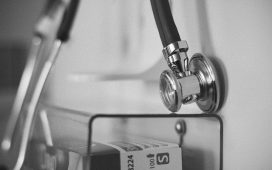Recovering from the effects of substance use disorder (SUD) is a lifelong process and journey. It goes beyond totally eliminating alcohol and drugs from your system and routine. Recovery starts with building a strong foundation for a healthier way of life.
Staying on the path to recovery, however, requires emotional resilience, patience and strong support from friends and loved ones. Also, professionals are eager to help you in your journey. Treatment centers, such as adrug rehab and recovery center, can guide you as you heal from your struggles with alcohol and drugs.
Here are steps you can take as you heal from your struggle with SUD.
Rebuild Relationships with Family and Friends
Recovering from SUD on your own is difficult, if not impossible. You need guidance and love from your inner circle to completely heal physically and emotionally. Establishing or rebuilding close connections with family and friends strengthens you as you go through your journey of recovery. You need someone to affirm you during the good and the bad times. Your loved ones can also offer comfort and support as learn to live life outside of drugs and alcohol.
At the same time, your family and friends will go through their recovery process. One of the consequences of SUD is loss of trust and mutual respect. Use this time of healing to re-establish their trust in you, but accept that it may take months or even years.
Plan Your Meals
If you’re unsure how to heal your body after years of SUD, start with a weekly meal plan. One of the best ways to heal your body and mind is adequate nutrition. This means your meals must be packed with vitamins and minerals and aren’t too calorie-heavy. As soon as you begin your journey to healing, focus on your nutrition to reduce your risks for diseases.
When planning your meals, think about your weekly schedule and the time you have to cook and eat at home. For people who go to school or work full-time, one planned meal per day works. Create a meal plan for your dinner. But with the current COVID-19 pandemic, you may have more time to plan all of your meals.
If you’re not yet confident with your meal planning skills, however, starting with just one meal per day is OK. This helps you expand your meal plans in the future.
Follow these tips when selecting meals for your plan:
- Make sure you eat plenty of fruits and vegetables
- Choose healthy fats, like avocado, seeds, nuts and olive oil
- Switch from white flour and rice to whole grains
- Fill your meals with lean proteins found in tofu, chicken and fish
- Refrain from consuming high-fat dairy products
Once you’ve planned a selection of meals you love and are willing to cook, make your grocery list. Doing so will not just positively distract your mind; it ensures that you have everything you need for your meals. A grocery list will also keep you from straying from your meal plan while roaming the different food sections in your local grocery.
Meal planning is often a trial-and-error task, so don’t be too hard on yourself when you “fail.” It’s natural. Ask for a loved one’s help, someone who has experience with meal planning. Alternatively, get in touch with a registered dietitian.
Beat Substance Abuse with Regular Exercise
Exercise is good for everyone. However, most people recovering from SUD are also recovering from a sedentary lifestyle. The shift from a sedentary to an active lifestyle can be difficult, but exercise is crucial to your recovery. It restores your body into a healthy state, as well as offers the following benefits:
- More energy. Most people in recovery feel tired and sluggish. It may sound ironic but using more energy can help your body feel more energetic, which makes exercise an important tool to help you feel healthier and more capable of doing more tasks.
- Reduced stress. Exercise causes your brain to release serotonin, aka the happy hormone. This hormone reduces stress-related hormones, which can immensely help with depression and anxiety – two feelings most people in recovery often experience.
- Sounder sleep. Sleep rebuilds the body after a long day. It is also essential in your recovery. Regular exercise can help ease insomnia or disturbed sleep, keeping your body well-rested and reducing your chances of relapse.
- Better mood. Apart from reducing your stress levels, exercise can also improve your mood after and for hours beyond.
So instead of binge-watching your favorite series or Christmas movies on Disney, get up on your feet and get exercising.
Recovery from SUD is difficult, but not impossible. The baby steps you take are big steps toward a healthier version of yourself. You’ll do well!







